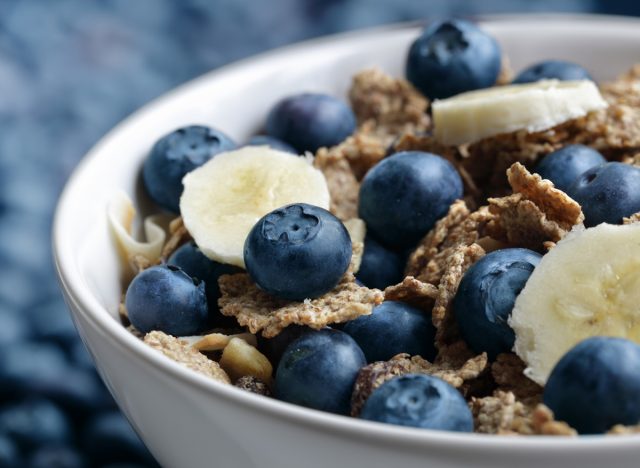Are you looking to lose a few pounds but tired of being constantly hungry? You’re not alone! Many people have difficulty managing their appetite when trying to lose weight. The good news is that there are many healthy and effective ways to suppress your weight loss appetite without resorting to extreme measures. From simple lifestyle changes to smart food choices, we offer 10 proven strategies to help you feel full longer and stay on track to reach your weight loss goals.
Eat more protein.

Eating more protein can be like having a secret weapon against hunger. Research shows that protein helps you feel full and satisfied, so you’re less likely to snack on unhealthy foods later. It also plays tricks on your hunger hormones, making you feel less hungry overall. Plus, protein requires more energy for your body to digest, so you burn a few extra calories just by eating it. It’s like a little boost to burn calories!
Eat more fiber.


Fiber adds bulk to your meals, keeping you feeling full and satisfied. Think of your stomach as a big balloon: When you eat fiber, it’s like filling that balloon with air, making it expand and signaling to your brain that you’re full. This means you’re less likely to snack between meals. Fiber too slows down the digestion processkeeping you fuller for longer.
Include healthy fats.


Not all fats are bad! In fact, healthy fats are essential to a well-rounded, nutritious diet, especially when you’re looking to lose weight.
When you eat fats like avocados, nuts, and olive oil, it takes your body longer to digest them than carbs or protein. This slow digestion means that fats stay in your stomach longer, sending signals to your brain that you are full and satisfied. Additionally, fats add flavor to your meals, making them more satisfying and enjoyable.
Hydrate.


Drinking enough water helps reduce those unpleasant feelings of hunger and may even keep you fuller for longer. In fact, according to a 2014 study study published in the Journal of Natural Sciences, Biology and MedicinePeople who drank more water before meals experienced a decreased appetite and greater weight loss over an eight-week period.
Sometimes when you think you’re hungry, your body may actually be thirsty, so drinking water can help you determine if your stomach is really growling or if it’s just a little parched.
Find productive ways to manage stress.


When your body is in high stress mode, it can play with your hunger signals. It’s like your body is so focused on managing stress that it forgets to be hungry. Additionally, stress can trigger cravings for less healthy foods, which can lead to overeating. When you’re relaxed, your body can focus on controlling your hunger signals. So you’re more likely to eat when you’re actually hungry, not just when you’re stressed.
Get enough sleep.


When you are well rested, your body’s hormones are in harmony, with healthy levels ghrelin (the hunger hormone) And leptin (the satiety hormone) in check. Think of ghrelin as the gremlin that makes you crave snacks, especially late at night. When you’re sleep-deprived, ghrelin kicks into high gear, making you hungrier and more likely to reach for that bag of chips. On the other hand, leptin, the hormone that tells your brain you’re full, takes a nap when you’re sleep-deprived, leaving you unsatisfied even after eating.
Stay active.


When you move and groove, your body releases happy chemicals called endorphins, which can help curb those pesky hunger pangs. Plus, staying active can boost your metabolism, which means revving up your body’s engine to burn more calories even when you’re relaxing. And here’s the thing: When you feel good after all that exercise, you’re less likely to mindlessly snack due to boredom or stress.
Limit your intake of sugary foods and drinks.


When you indulge in sugary treats, your blood sugar levels rise, giving you a boost of energy, but it doesn’t last long. Soon after, your blood sugar levels drop, leaving you tired and craving more sugar to get that boost of energy. It’s like a roller coaster for your appetite!
By reducing your intake of sweets, you can avoid these highs and lows. So when you replace those sugary snacks with healthier options, you’re more likely to stay full longer and avoid those pesky hunger pangs.
Practice mindful eating.


When you eat mindfully, you listen to your body’s signals, like a food detective. Instead of mindlessly wolfing down food, you savor each mouthful, noticing the flavors, textures, and sensations in your body. This superhero skill helps you recognize when you’re full and satisfied, so you’re less likely to overeat. Mindful eating is like having a secret weapon against mindless snacking, helping you feel full and more satisfied with less food.
Eat regular meals.


Regular meals help stabilize blood sugar levels, maintain stable energy, and prevent sudden crashes that leave you craving sugary treats. Additionally, when you eat meals with a good balance of nutrients, your body feels nourished and satisfied, reducing the urge to overeat.
#Naturally #Suppress #Appetite #Weight #Loss




